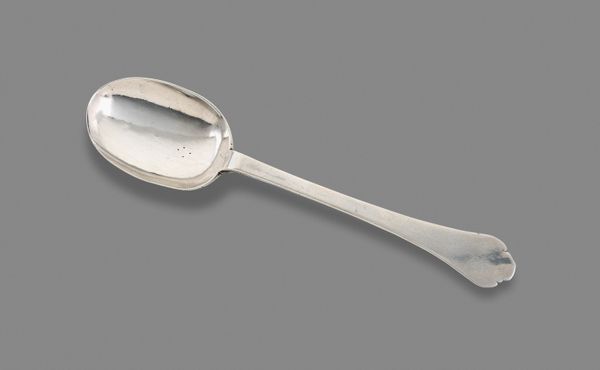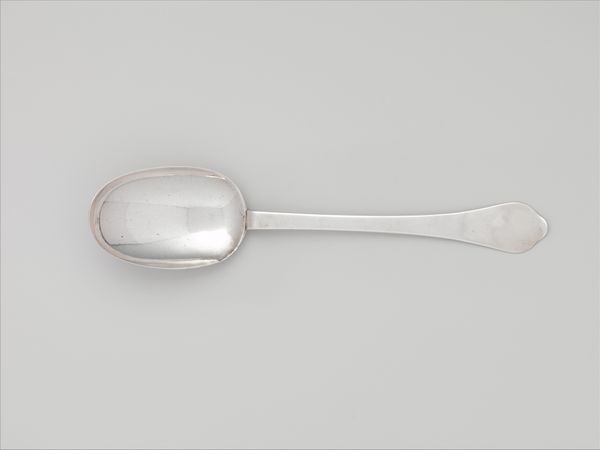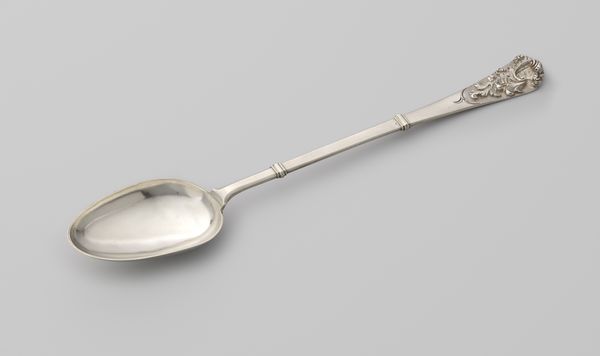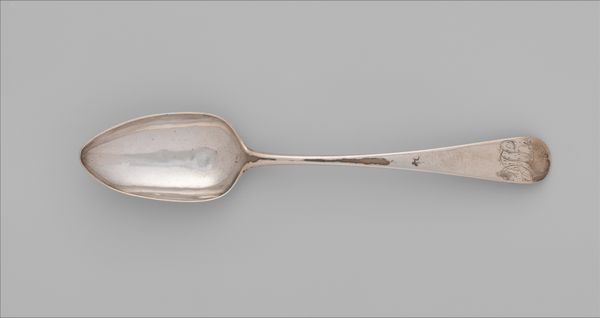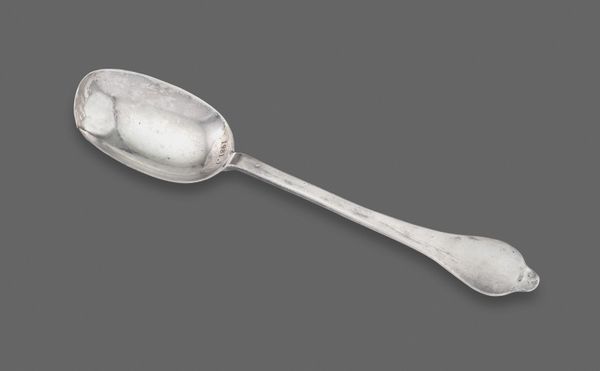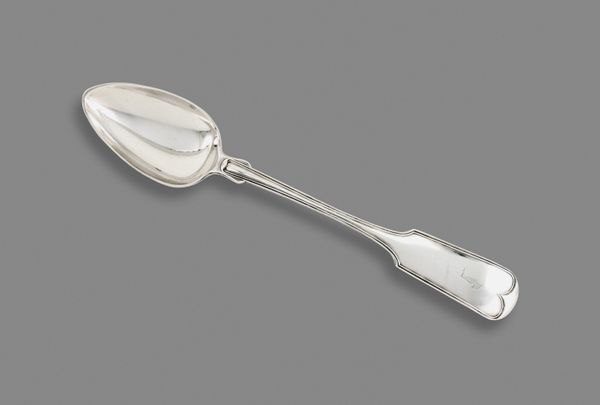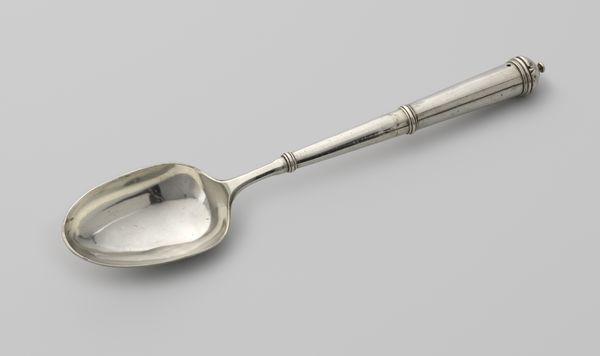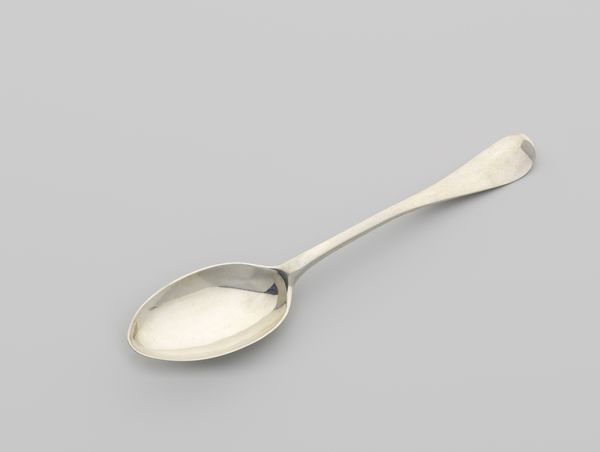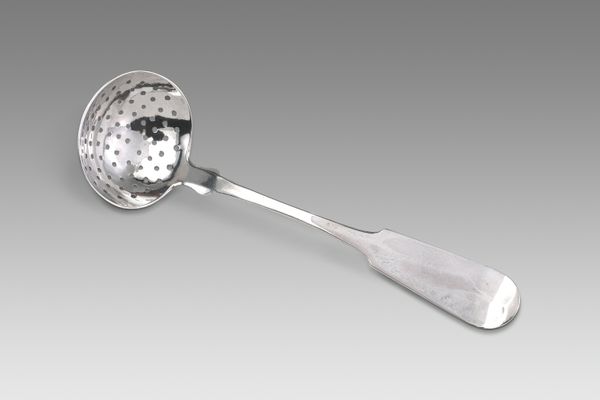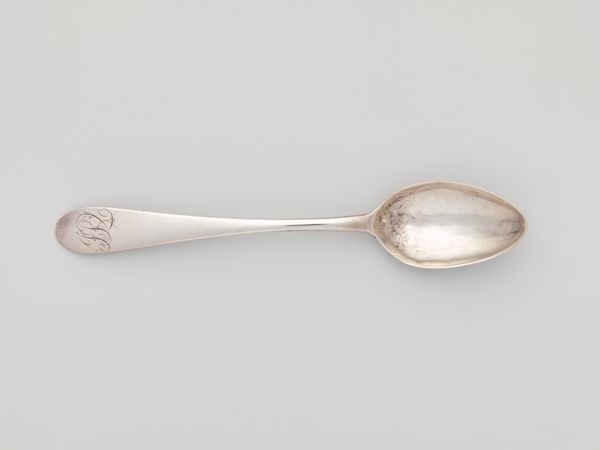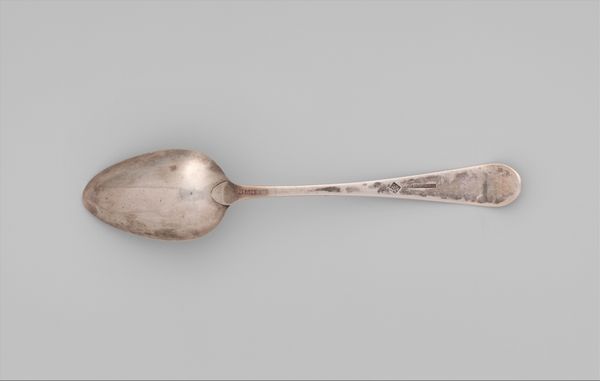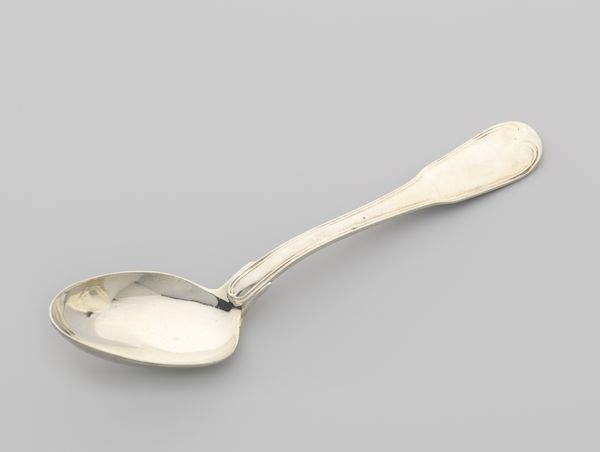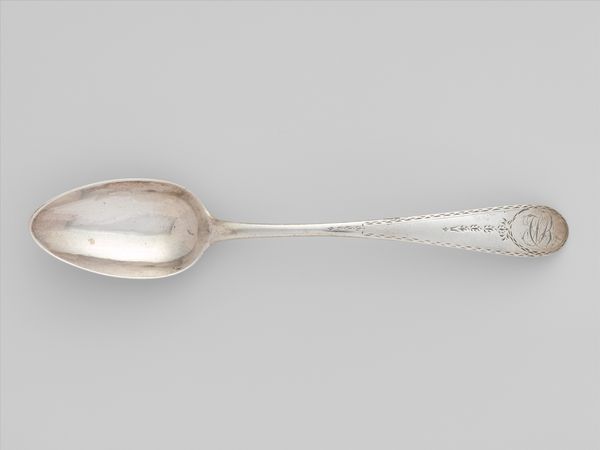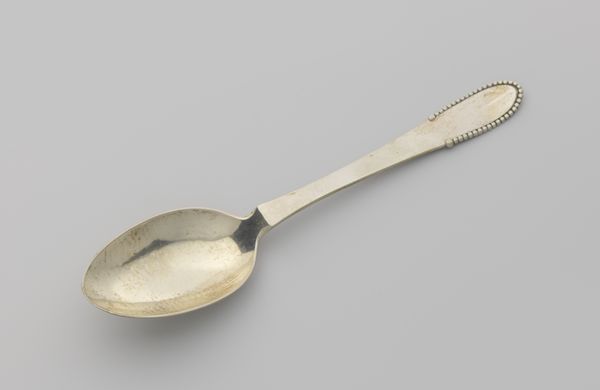
carving, silver, metal
#
carving
#
silver
#
baroque
#
metal
#
decorative-art
Dimensions: 1/2 x 6 7/8 in. (1.3 x 17.5 cm); 1 oz. 8 dwt. (44.2 g)
Copyright: Public Domain
This is a silver spoon made by Jeremiah Dummer, a silversmith active in late 17th and early 18th century Boston. As a work of decorative art, the spoon speaks to the material culture of early colonial America, as well as the ways that transatlantic trade networks facilitated the circulation of luxury goods. The hallmarks on the spoon's bowl tell us this was no ordinary piece of tableware. Dummer was one of the first American-born silversmiths and he came from a family prominent in Massachusetts politics and commerce. His spoons and other objects were highly sought-after status symbols, signaling the owner's place within the emerging colonial elite. This was a society in which social rank was increasingly tied to the possession and display of wealth. To understand this spoon fully, we need to consider the social and economic conditions of its time, including patterns of consumption, trade, and the social hierarchies it reflects. We can learn a great deal by studying inventories, probate records, and other archival documents that illuminate the lives of those who owned and used such objects.
Comments
No comments
Be the first to comment and join the conversation on the ultimate creative platform.
